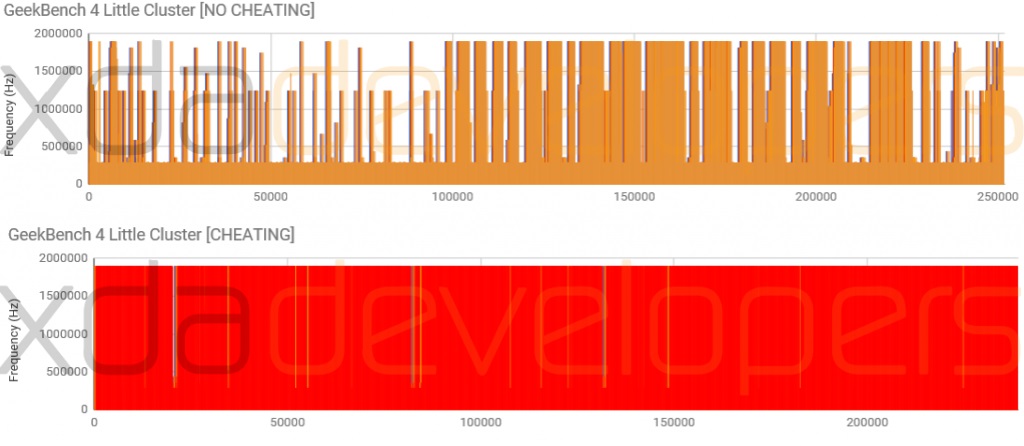OnePlus doesn’t appear to have learned its lesson about cheating. Android review site XDA Developers has accused the company of introducing software to influence benchmark scores on the OnePlus 5. An accusation that OnePlus has not actually denied.
According to the report, the review unit sent to certain publications contains code that sustains the Snapdragon 835 SoC at maximum performance for longer. The result is that the smaller cores are capped at 1.9GHz (the highest they can go) for 95 percent of the benchmark duration. Under normal usage, the smaller cores only hit their maximum frequency 24.4 percent of the time.

This small change increases the overall benchmark score by about five percent. It doesn’t sound like a lot; but that’s five percent better than any other device sporting a Snapdragon 835. Boosting the smaller cores also results in a negligible increase in thermals, making the change extremely difficult to spot.
In fact, XDA only examined OnePlus’ OxygenOS build because the company had been caught doing this very thing before.
The report notes that OnePlus’ cheating programme is very similar to the one it had used before. Only certain benchmarks were targeted by name; with the cheats built directly into the ROM.
While the CPU benchmarks were carefully rigged, it turns out that the GPU had some telltale signs of being tampered with. The OnePlus 5 ran extremely hot while using GFXBench’s Manhattan Battery Test; reaching 50-degrees Celsius. On the other hand, since the ROM targets specific benchmarks by name, 3Dmark ran without any additional influence.

OnePlus itself does not appear to be concerned with being caught. The company told XDA that “people use benchmark apps in order to ascertain the performance of their device, and we want users to see the true performance of the OnePlus 5.” The overall tone of the message indicates that OnePlus doesn’t care about giving people a measure of the everyday performance of its phone.
Which itself brings into question the purpose of benchmarks in reviews. Ideally, it provides the public with a tangible measure of smartphone performance. Giving people a frame of reference for how efficient or powerful a particular device is in relation to its peers. In this situation, tampering with reviewer benchmarks gives a false impression of the quality of the device.
On the other hand, not everyone takes benchmarks into account when buying phones (or any other electronic device). In fact, numbers only appear to matter to true hardware enthusiasts and have little effect on consumer opinion.
It would have been less of a problem if OnePlus was more upfront about the practice of boosting hardware performance. Especially if the intent was to show the full potential of the processor. Something like what overclocking is for PC hardware.
Concealing the practice and hoping to get a better score is done in poor taste. Especially for a company that has tried to get away with this before. Make no mistake, OnePlus is not the only company to have cheated at benchmarks; both HTC and Samsung have done the same in the past. It’s just that OnePlus is the only company that thinks it can get away with it.
[Source: XDA Developers]


